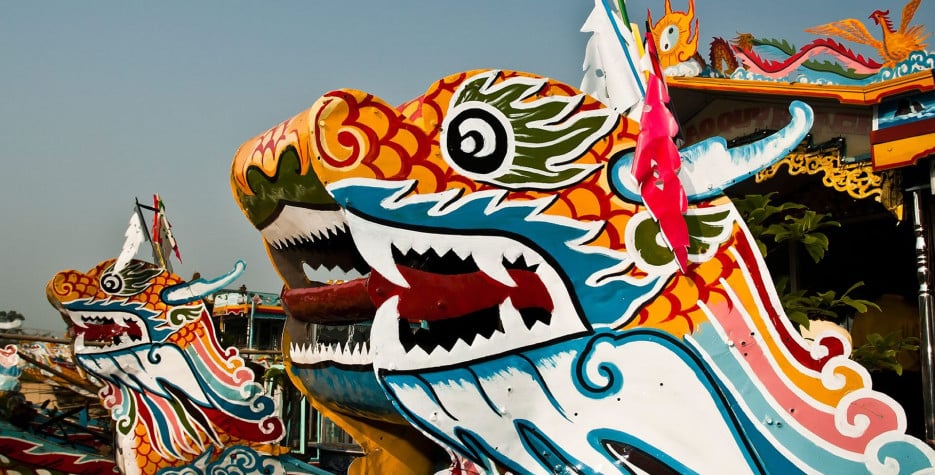When is the Dragon Boat Festival?
The Tuen Ng Festival, otherwise known as the Duanwu or Dragon Boat Festival, has been celebrated on the fifth day of the fifth month of the Chinese lunar calendar for millennia. During this festival, people across Asia, and especially Central and Southern China, gather to watch dragon-shaped boats race along river banks and lakes.
Traditions of the Dragon Boat Festival
Legend has it that the holiday honours the tragic death of Chu Yuan, who died in 288 BC. At the time of Warring States, Chu Yuan was a poet and the minister of the state. The King was captured during fighting and in honour and remembrance of the old King, Chu Yuan wrote a poem called “Li Soa.” This angered the new King, who ordered Chu Yuan into exile. Instead of leaving his beloved country, Chu Yuan threw himself into the Mi-Lo River.
The legend proclaims that the people tried to rescue their honoured statesmen by chasing him down the river, beating drums to scare away the fish and throwing dumplings into the river so that the fish would not eat his body. Today’s celebrations symbolize the vain attempts of the friends and citizens who raced down the river to save Chu Yuan.
The Dragon Boat Festival is also known as poets day as Chu Yuan is widely regarded as China’s first poet. Chu spent his time in exile writing poems to express his anger and sadness.
Despite the legend, the festival's origin is much, much older and is actually connected with very ancient beliefs in the power of the spirits that animated the world and the need to propitiate them. The wish to appease the Water Dragons, who were the spirits of the rivers, will have started on the banks of the great rivers with China’s first agriculturalists. Anthropologists think that the earliest boat races were a sort of ritual combat, connected with ceremonies conducted as spring passed to summer, to ensure ample rainfall, ward off pestilence, and reduce flood damage.
How is Dragon Boat Festival celebrated?
Today’s celebrations symbolize the vain attempts of the friends and citizens who raced down the river to save the respected Chu Yuan. There are half a dozen sites in Hong Kong today that participate in the dragon boat races.
A dragon boat is a huge war canoe traditionally made from teak that has a dragon’s head carved into the bow and a dragon’s tail carved at the stern. The boats can range up to 100 feet in length and seat anywhere from 20 to 80 paddlers, varying in size. A sacred ritual is held before the race when the eyes are painted on, which is said to "bring the boat to life." A drummer who sits mid-boat and keeps the time of the oar strokes on a huge drum accompanies all boats.
The dragon boat races are daylong events. All kinds of organizations from around the globe such as police, fireman, army, embassies, and even local journalists' unions, travel to Hong Kong and enter teams for the races.
A gunshot sets the boats off and the beating drums and cymbals from the crowded shores fill the harbours with noise. The races last all day; on the shores of Hong Kong people celebrate with lively song and dance, rooting on their team.
It is believed that the Dragon Boat Festivals repel evil and bring luck in the summer months.
Zongzi
It seems like you can't have an important south-eastern Asian festival without some form of rice dumplings and Dragon Boat is no exception. A popular tradition associated with the Dragon Boat Festival is eating sticky rice dumplings called zongzi.
They are often given out as small gifts during the festival and are available from most shops.
The rice is wrapped in bamboo or lotus leaves and the rice is flavoured depending on the region. In the north of China, the dumplings are usually sweet; while in the south of China, the zongzi are more typically savoury. In Taiwan, they may be made with peanuts, chestnuts and squid.
About a week after the festivals in Hong Kong, special International Dragon Boat Races are held all over Asia and the United States. In the U.S., they can be found in Boston, New York, and Colorado. Currently, there are 68 countries which are members of the International Dragon Boat Federation, showing the popularity of the race.
In 2009, this festival was inscribed on UNESCO’s list representing the intangible cultural heritage of humanity.


